Google Data Privacy Updates for US 2024: What You Need to Know
UniConsent
Table of contents
Complying with data protection laws in the United States can be challenging as 18 different state regulations have been enacted and more are expected to be enacted. Google recently informed U.S. advertisers about updates to opt-out preferences in its advertising and analytics products, because of organizations navigate the complexities of the American legal landscape. Follow this article to help you understand what this update means for your organization and how to stay compliant with UniConsent.
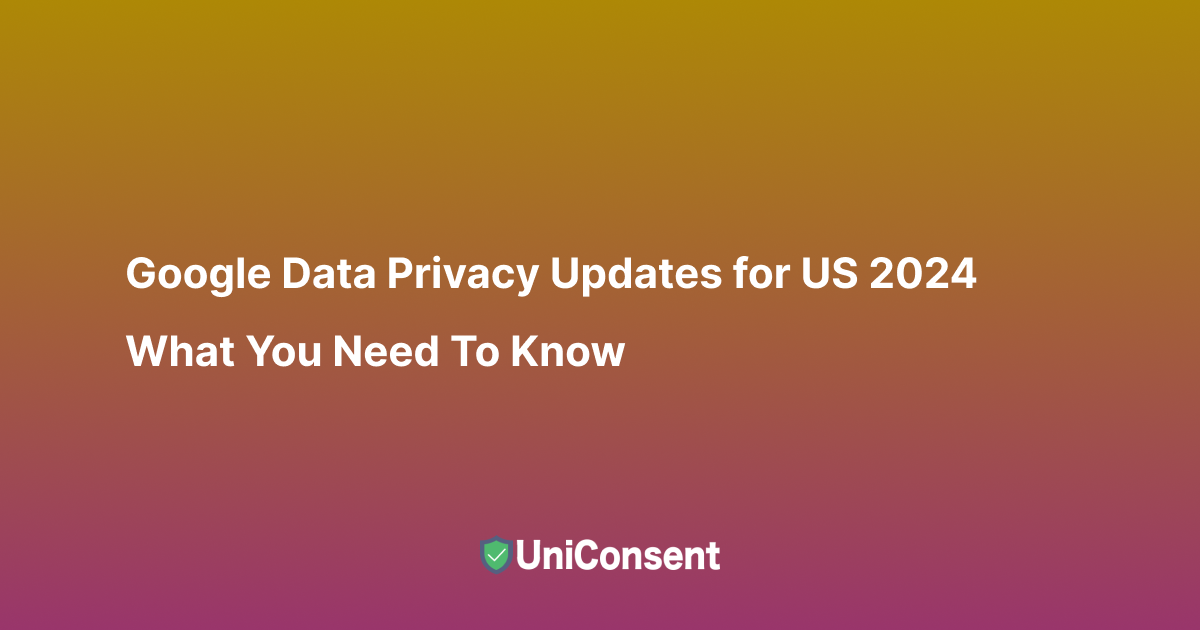 Google Data Privacy Updates for US 2024: What You Need to Know
Google Data Privacy Updates for US 2024: What You Need to Know
Understanding Google’s new updates regarding advertising and analytics products in the U.S.
New US State Laws
In a recent communication to users of Google Ads and analytics products, Google acknowledged upcoming U.S. regulations, specifically mentioning those in Florida, Texas, Oregon, Montana, and Colorado, with particular emphasis on Colorado's Universal Opt-Out Mechanism (UOOM) provisions.
Google has announced that it will update its practices across its ads and analytics products to adhere to these opt-out provisions. For instance, in the case of Colorado's opt-out provisions, this will involve receiving and processing the Global Privacy Control (GPC) signal from users to respect and apply their choices.This will be facilitated through Restricted Data Processing (RDP):
- Google will revise its ads terms to enable Restricted Data Processing (RDP) for states as their new privacy laws take effect. RDP limits Google's data usage to only show non-personalized ads.
- This adjustment allows Google to act as a data processor rather than a controller for partner data while RDP is enabled.
- If you have already accepted Google’s online data protection terms, no further action is required.
Colorado’s Universal Opt-Out Mechanism (UOOM)
The Colorado Privacy Act's UOOM provisions mandate that Global Privacy Control (GPC) signals be honored, allowing users to opt-out of ad targeting. The key changes include:
- To adhere to Colorado’s Universal Opt-Out Mechanism, Google will honor Global Privacy Control signals sent directly from users.
- This will disable personalized ad targeting based on factors such as Customer Match and remarketing lists for users who have opted out.
This means that if a user opts out of ad targeting via a GPC, Google will ensure that personalized ads are not served to them based on Customer Match, Audiences API, Floodlight, and Remarketing lists.
Implications for the data privacy industry and your organization
- Reduced Personalized Ads Inventory: Advertisers may see a decline in the availability of personalized ads inventory for bidding. This is due to an increasing number of users opting out of ad targeting via GPC.
- Targeting Efficiency: The effectiveness of ad targeting might diminish as more users opt out, resulting in less precise audience segments.
- Functionality of Marketing Tools: Tools such as Customer Match, Audiences API, and Floodlight Remarketing lists may experience reduced functionality. This is a direct consequence of higher opt-out rates, which limit the amount of user data available for personalized marketing efforts.
Understanding Restricted Data Processing (RDP) and Global Privacy Control (GPC)
Restricted Data Processing (RDP) is a privacy feature designed to help businesses comply with various data protection regulations by limiting how user data is processed and shared. When RDP is enabled, Google restricts the processing of user data for personalized advertising and other purposes not directly related to the delivery of core services.
RDP assists businesses in complying with privacy laws by offering a clear and manageable way to limit data processing activities. This feature ensures that user data is handled in accordance with legal requirements, thereby reducing the risk of non-compliance. By enabling RDP, businesses can demonstrate their commitment to protecting user privacy and adhering to state-specific regulations.
Global Privacy Control (GPC) is a proposed specification that enables internet users to communicate their privacy preferences, such as not wanting their personal information sold or shared. Embedded in browsers or mobile devices, GPC offers a standardized approach for users to control their digital footprint across different websites. It functions as a browser-level signal, either managed by the browser or through extensions, acting as a universal "Do Not Sell" preference.
Google’s implementation of the GPC ensures that when a user sends a GPC signal, Google receives this information and adjusts its data processing activities accordingly. Specifically, Google will disable personalized ad targeting and limit data processing for users who opt-out through GPC. This automatic response simplifies compliance for businesses and enhances the protection of user privacy.
Next Steps and Ongoing Compliance
As more states enact privacy laws and existing regulations are updated, it is crucial to anticipate and prepare for further changes. Google confirmed their recent initiatives, including adopting the IAB Tech Lab’s Global Privacy Platform (GPP) and supporting the Global Privacy Control (GPC) signal in its Chrome browser.
Google has been extensively working on enhancing data privacy in its products and services over the past few years in Europe. This includes the release of Google Consent Mode V2, the adoption of the Transparency and Consent Framework v2.2, and the establishment of the CMP Partner Program.
The law changes in Florida, Texas, Oregon, Montana, and Colorado are coming, along with the enforcement of the Colorado Privacy Act’s Universal Opt-Out Mechanism, represent significant developments in the data privacy landscape. Google is committed to assisting its partners in navigating these changes by providing comprehensive compliance tools and resources.
UniConsent has been a Google collaborator and certified CMP provider for a long time. We are strategically positioned to assist U.S. companies prepare for the significant shifts we anticipate will occur in the U.S. data privacy landscape.
To learn more, explore our Google-certified Consent Management Platform (CMP)
About UniConsent
UniConsent CMP is a globally recognized and certified Consent Management Platform (CMP) catering to leading publishers and serving tens of millions of users daily. By providing a seamless privacy experience, UniConsent CMP helps businesses navigate the post-GDPR era and meet the evolving demands of data protection regulations. Contact us to learn more: hello@uniconsent.com
Activate Google Consent Mode UniConsent to enhance the accuracy of your Google Analytics and Google Ads conversion data.
Set up Google Consent Mode →Get started to make your website and application compliant for EU GDPR, US CPRA, CA PIPEDA etc
Sign upConsent Management Platform Resources
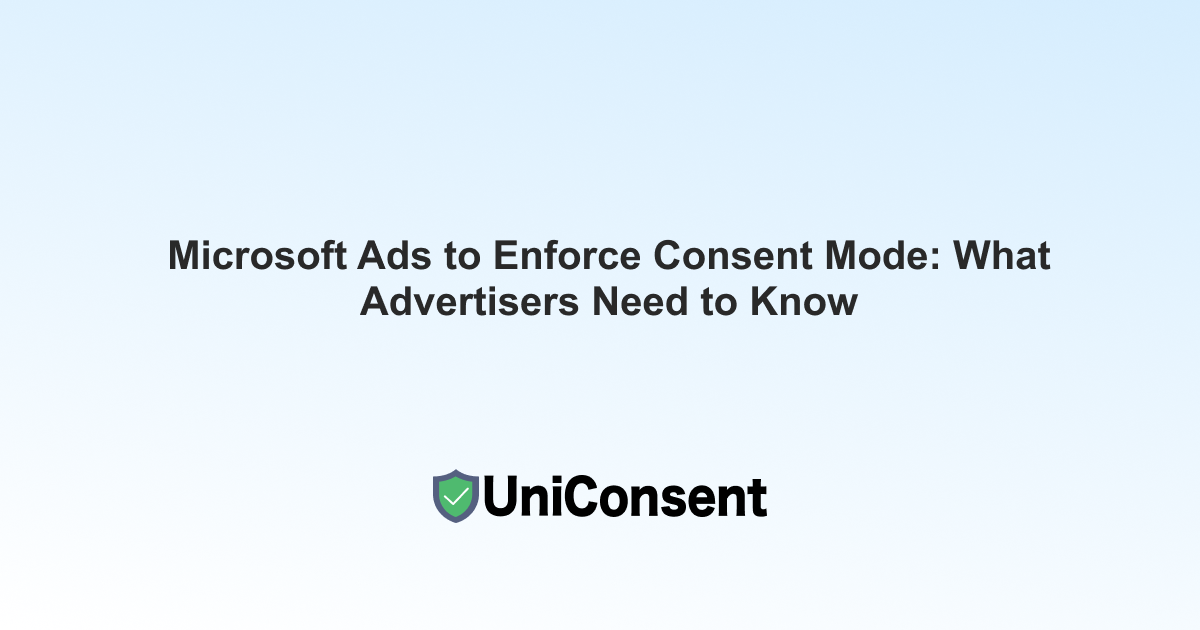
Microsoft Ads to Enforce Consent Mode: What Advertisers Need to Know
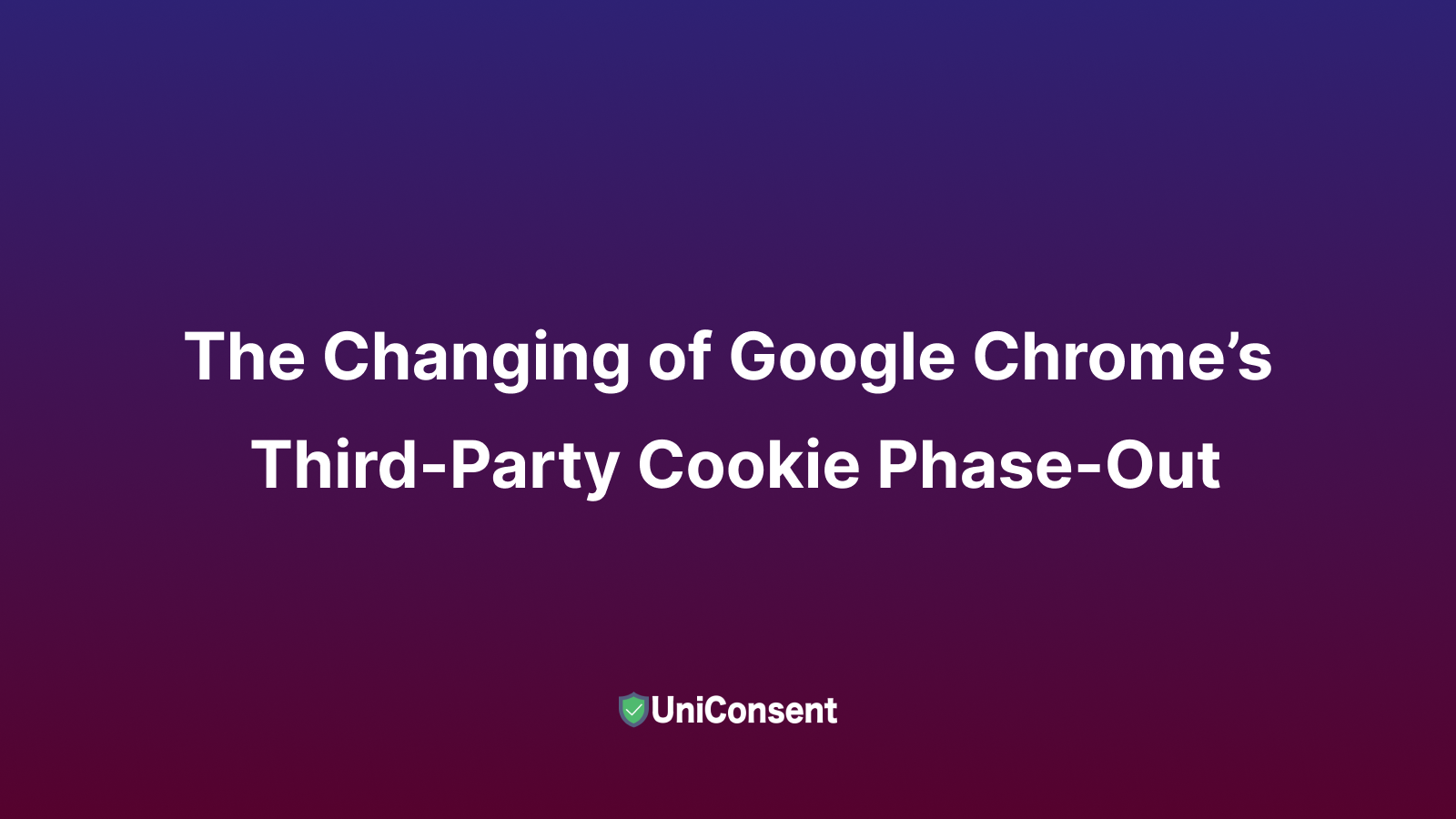
The Changing of Google Chrome’s Third-Party Cookie Phase-Out
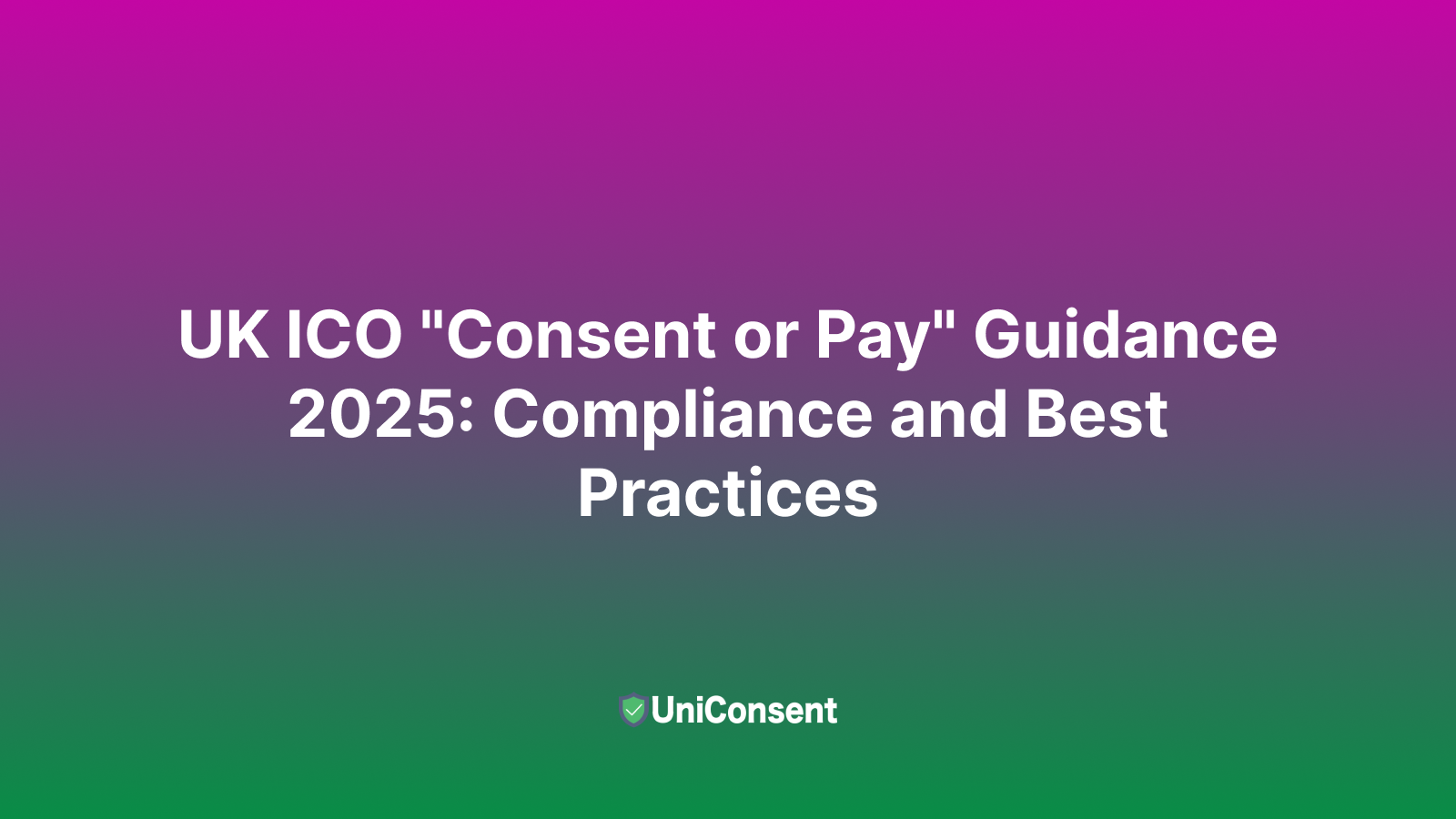
UK ICO "Consent or Pay" Guidance 2025: Compliance and Best Practices
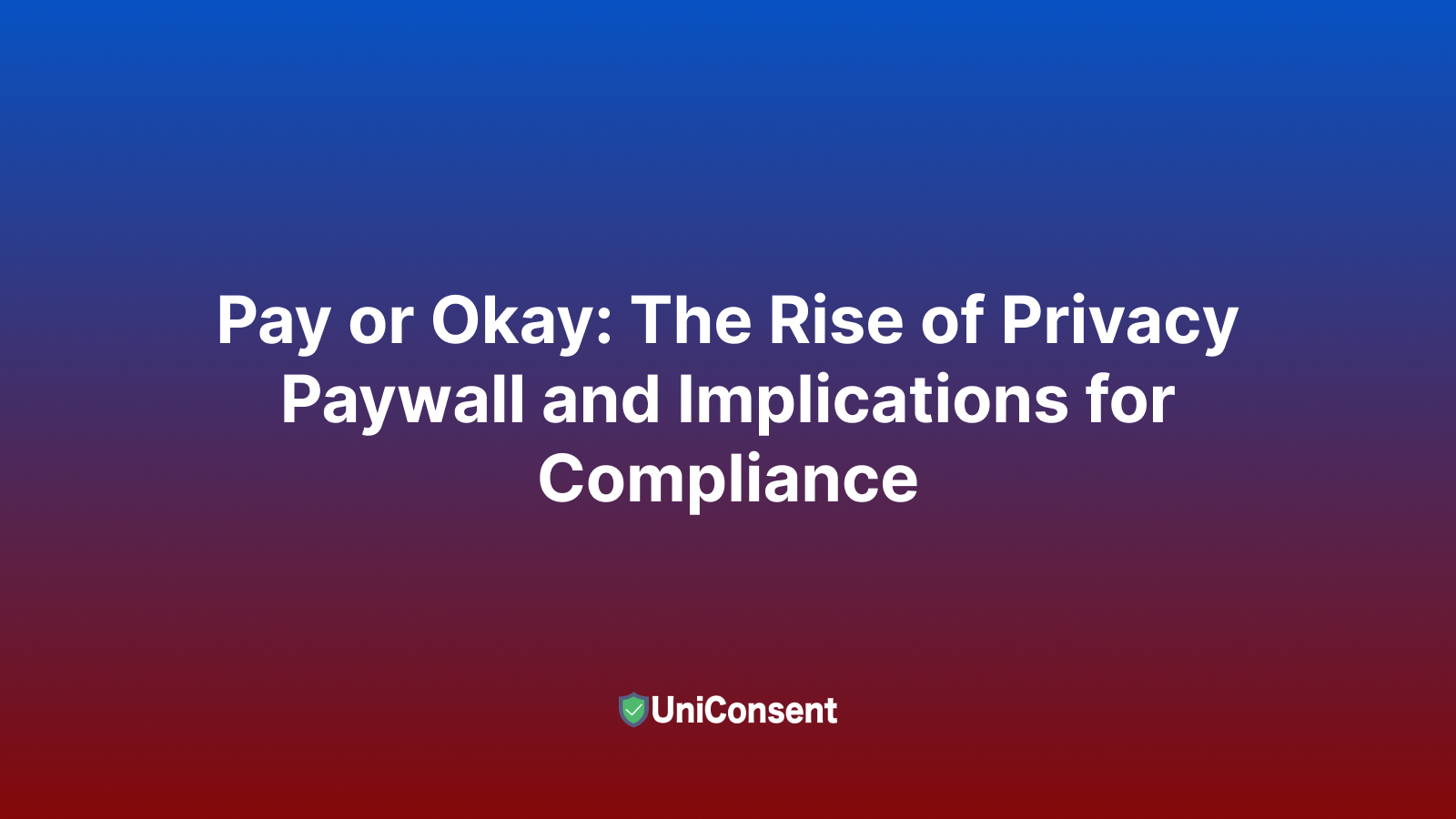
Pay or Okay: The Rise of Privacy Paywall and Implications for Compliance
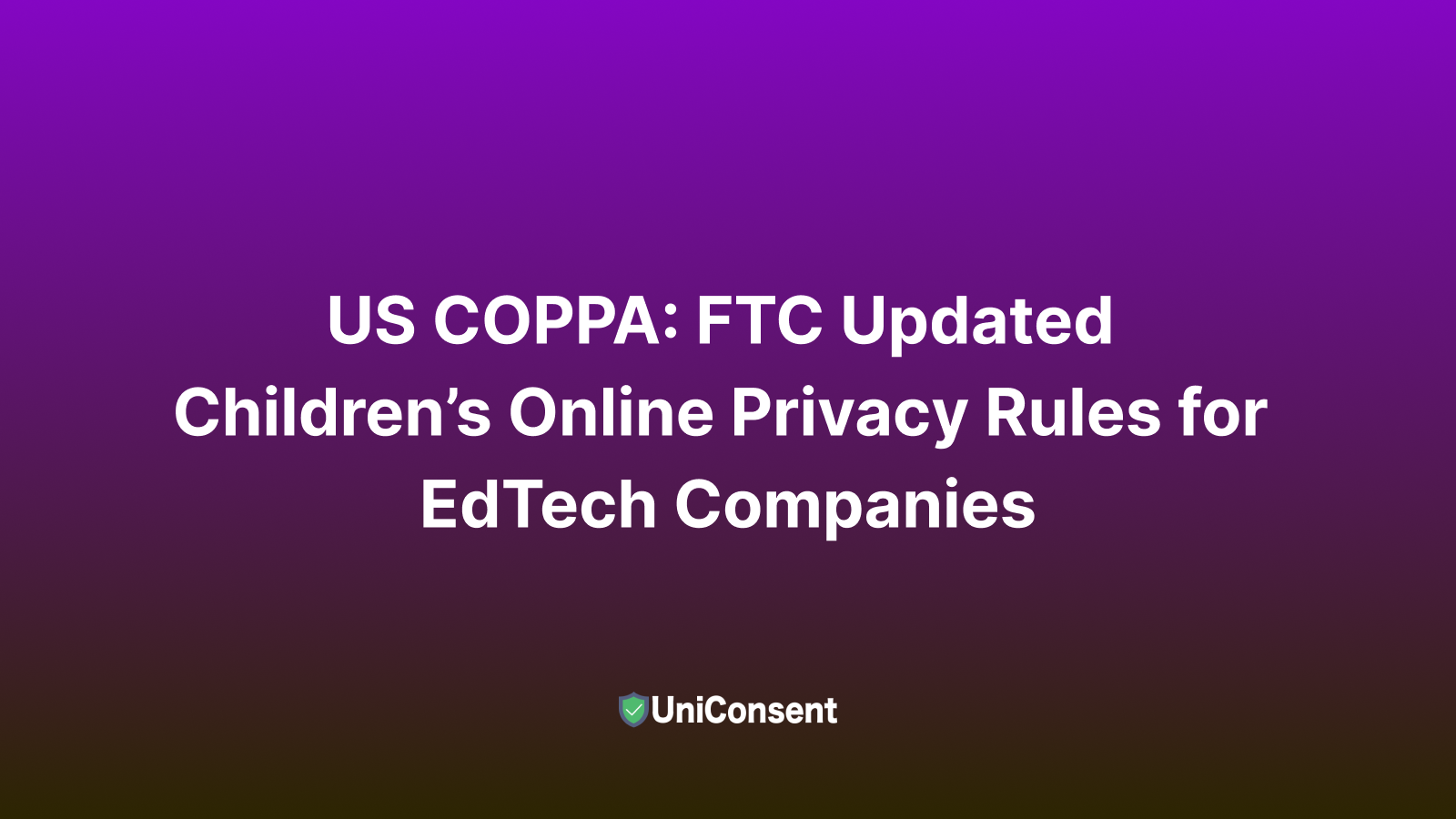
US COPPA: FTC Updated Children’s Online Privacy Rules for EdTech Companies
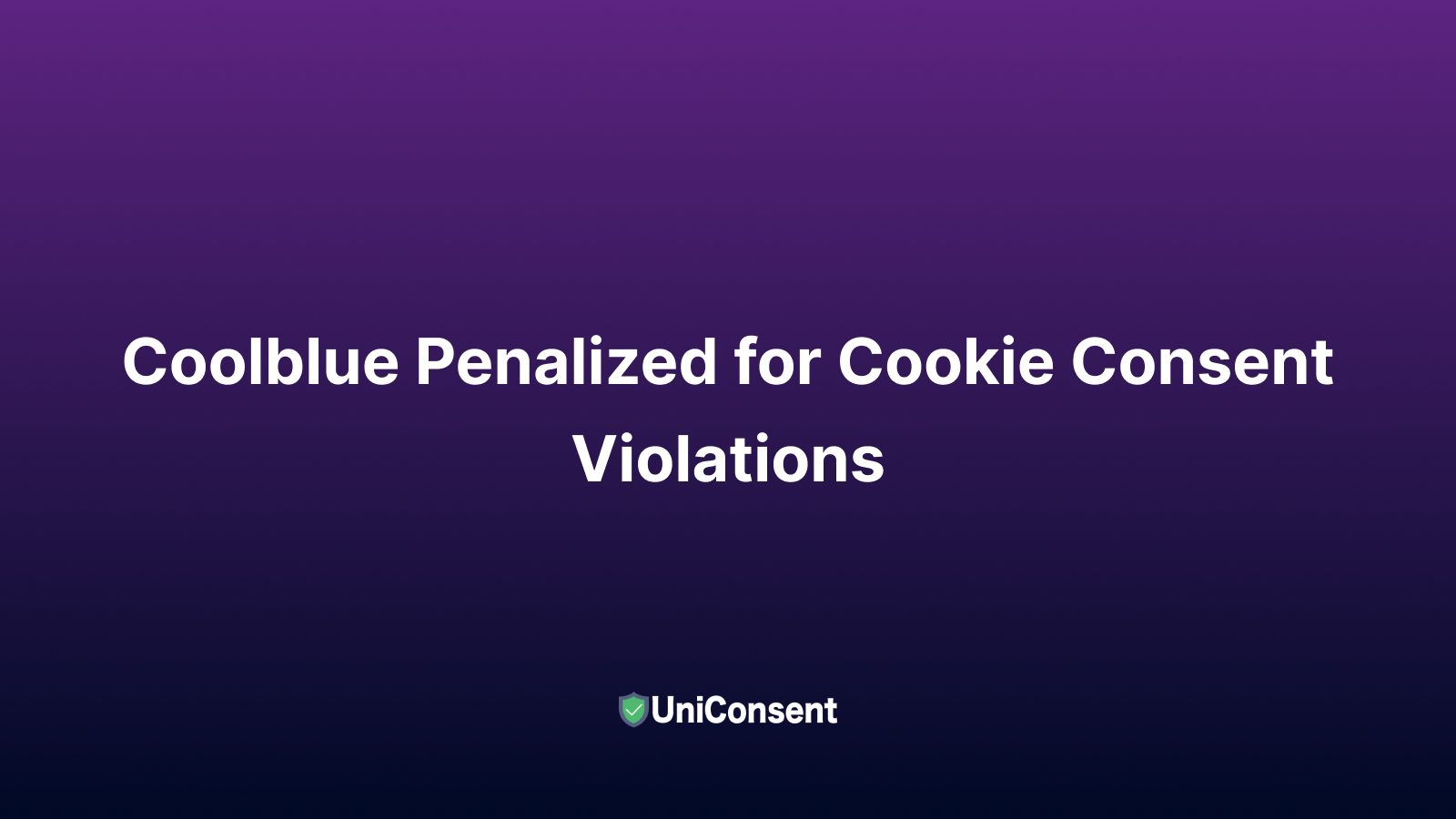
Coolblue Penalized for Cookie Consent Violations
Get started to make your website and application compliant for EU GDPR, US CPRA, CA PIPEDA etc
Sign up